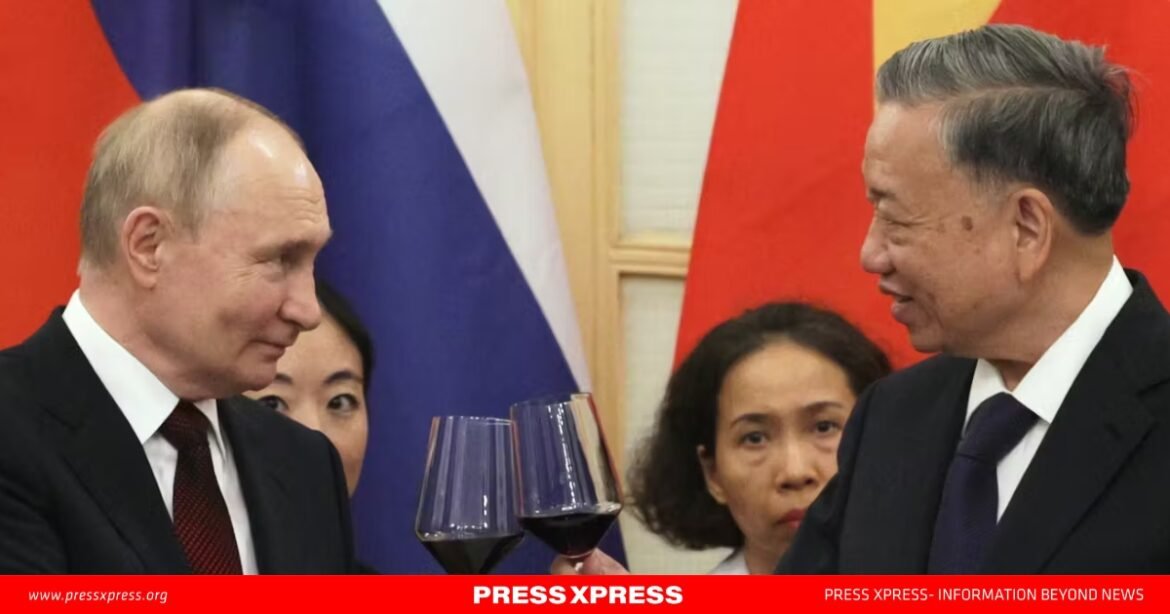Vietnam has long mastered the art of balancing its foreign relationships, a strategy rooted in its Doi Moi reforms of 1986. These reforms transformed its foreign policy from an ideology-driven approach to one defined by independence, self-reliance, and strategic adaptability. This philosophy, often referred to as “bamboo diplomacy”, emphasizes maintaining core values while flexibly adapting to global changes.
At the heart of Vietnam’s approach are four guiding principles: avoiding military alliances, refraining from taking sides in conflicts, prohibiting foreign military bases on its soil, and rejecting the use or threat of force. These principles became particularly relevant during the Ukraine conflict, when they were elevated to strategic rules in a defense white paper.
Vietnam’s Response to the Ukraine Conflict
The Ukraine war has tested Vietnam’s bamboo diplomacy, as it seeks to navigate its historic ties with Russia while maintaining its commitment to sovereignty and international law.
From the beginning, Vietnam took a cautious stance. Hanoi abstained from five UN General Assembly votes on the war, including a resolution to suspend Russia from the Human Rights Council. Vietnamese Foreign Minister Bui Thanh Son maintained communication with his Russian counterpart Sergey Lavrov, emphasizing the importance of a peaceful resolution. High-level visits, including meetings with Lavrov, Dmitry Chernyshenko, and Dmitry Medvedev, underscored the enduring relationship. In June 2023, Vietnamese President To Lam hosted Russian President Vladimir Putin in Hanoi, with agreements to deepen cooperation in defense, energy, and research.
Vietnam has maintained its partnerships with Russia through initiatives like the 2022 Russia Army Games, plans to establish a Nuclear Science and Technology Center in Dong Nai, and joint oil and gas exploration. In 2023, Vietnamese representatives attended the St. Petersburg International Economic Forum, signaling the continued importance of economic ties.
Simultaneously, Vietnam reached out to Ukraine to show solidarity. Foreign Minister Son assured Ukraine’s Dmytro Kuleba of Vietnam’s support for sovereignty and territorial integrity. Prime Minister Pham Minh Chinh met Ukrainian President Volodymyr Zelensky twice—in May 2023 at the G7 summit and in January 2024 at the World Economic Forum. To Lam also met Zelensky during a September 2024 trip to the US. Vietnam has provided humanitarian aid to Ukraine, including food and scholarships for students affected by the war.
Balancing Ties with the US and Russia
The conflict has placed Vietnam in a challenging diplomatic position. It is a key US partner in Southeast Asia, working closely with Washington on regional security and countering China’s growing influence. At the same time, Vietnam’s ties with Moscow, forged during the Vietnam War, remain strong.
The US expressed frustration over Vietnam’s abstentions in UN votes but remains committed to the partnership. In September 2023, US President Joe Biden visited Hanoi, where the two nations elevated their relationship to a Comprehensive Strategic Partnership. The agreement focuses on strengthening economic and security ties. In September 2024, President To Lam reciprocated by attending the UN General Assembly in New York.
However, Hanoi’s relationship with Russia complicates matters. While adhering to most Western sanctions, Vietnam has reportedly discussed resuming arms trade with Moscow—a move that could strain relations with Washington. Russian companies remain central to Vietnam’s energy sector, adding another layer of complexity, especially as Vietnam remains wary of Russia’s strong ties with China.
A Flexible Future
Vietnam’s bamboo diplomacy has allowed it to navigate the complexities of the Ukraine conflict without compromising its strategic independence. Looking ahead, the incoming Trump administration in the US could bring policy shifts that test Hanoi’s ability to maintain its balance.
For now, Vietnam’s strategy of flexibility, grounded in core principles, continues to serve it well in an increasingly polarized world. Its ability to adapt while safeguarding its sovereignty will be key to navigating future challenges.


